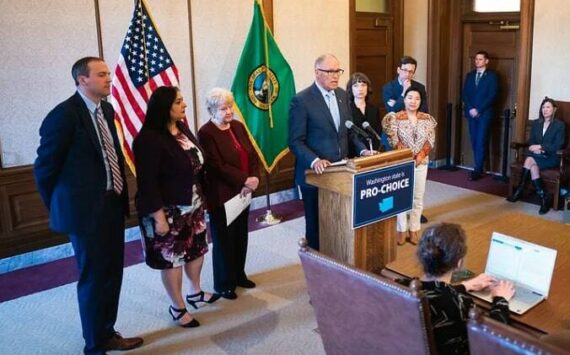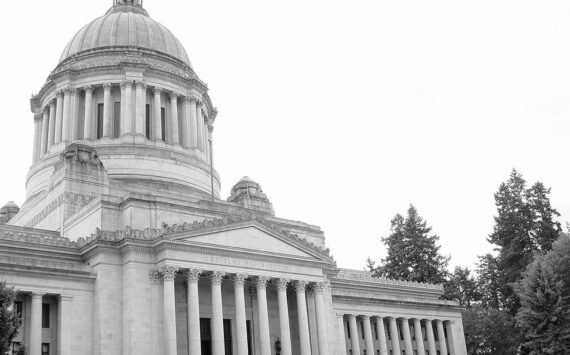Lawmakers began a third special session Wednesday amid spreading concern they will be unable to reach a budget deal in time to prevent the first-ever shutdown of state government.
The new session started minutes after the fruitless second extra session concluded. Gov. Jay Inslee said lawmakers can’t waste any time in their pursuit of an agreement to fund state government by the end of next week. If they don’t succeed, many state services will be halted and thousands of workers laid off July 1.
“The clock is running out,” Inslee told reporters at a Wednesday news conference. “I’m a lot more concerned today than I was three or four days ago.
“If legislators do not send me a two-year budget to sign by June 30, they will have to live with the legacy of being the first Legislature ever to fail completely on the one job they’re legally required to do,” he said.
And Inslee directed criticism at unnamed Senate Republicans for suggesting lawmakers enact a temporary 30-day budget if they can’t reach a deal. The governor said he’d veto such a bill if it came to his desk.
“A government shutdown and a 30-day budget are both equally reckless, equally irresponsible tactics,” he said.
Inslee said he told lawmakers to begin “continuous” face-to-face negotiations Thursday morning. He said he’ll attend the first sit-down and any others at which his presence will move the conversation forward.
The governor also said he’d invited all 147 lawmakers to join a conference call Thursday to learn what will happen if a shutdown occurs.
“It is a long, long list that touches virtually everyone in the state of Washington and it is totally unnecessary,” he said.
A statement issued late Wednesday by Senate Majority Leader Mark Schoesler, R-Ritzville, made no mention of a temporary budget.
“I fully expect the budget teams to submit a deal to the governor in time to prevent even a partial shutdown of state government,” Schoesler said. “Despite the partisan finger-pointing heard today from the governor, lawmakers on both sides have been working hard on multiple fronts to negotiate a compromise that fulfills our paramount duty to support public schools, without breaking the bank or over-burdening taxpayers.
“It’s no easy task and it shouldn’t be taken lightly,” the statement continued. “I’m frustrated it has taken this long but optimistic that our negotiators will cross that finish line in time.”
The Democrat-controlled House and Republican-led Senate have been at odds on a budget for months.
A central sticking point continues to be how the state will provide public schools with ample funding as demanded by the Supreme Court in the McCleary case. They know it will cost several billion dollars in the next couple of years and are wrestling on where those dollars will come from and when they will be spent.
Education funding isn’t the only impediment. There are differences on expanding mental health services, creating a new agency focused on serving children and families, and responding to the Supreme Court’s water rights decision known as Hirst.
The House and Senate exchanged budget offers Tuesday.
House Majority Leader Pat Sullivan, D-Covington, said such exchanges will need to occur much more often, even every hour, if they hope to get agreement in time to be written up and voted on.
House and Senate members have been told to be ready to return for floor action on short notice.
On Wednesday, Sen. Maralyn Chase, D-Edmonds, sat at her desk on the Senate floor as the second special session ended. She had come to Olympia to introduce three bills to raise revenue from new taxes.
She said she opposes a higher property tax proposed by Republicans because it hits lower-income families hardest. She was unaware House Democrats are agreeing to some level of property tax increase as part of the final deal.
“I’m mad,” she said. “A property tax is not the way to do it. We have alternatives.”
Meanwhile, as Inslee addressed reporters, Jared Kink, president of the Everett Education Association, and Justin Fox-Bailey, president of the Snohomish Education Association, stood in the back of room.
They came to share with Inslee and lawmakers their concern that the content of the final deal on education could impact matters such as teacher pay, collective bargaining rules and the ability of school districts to exercise local control of how their classrooms are run.
“We’re on edge, too. There is a lot at stake for us,” Kink said.
This story originally ran in the Everett Herald.







